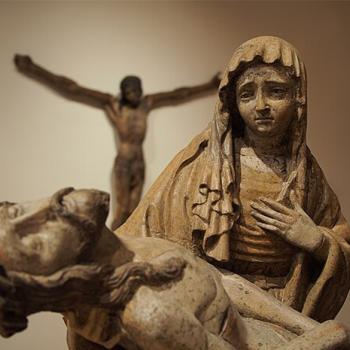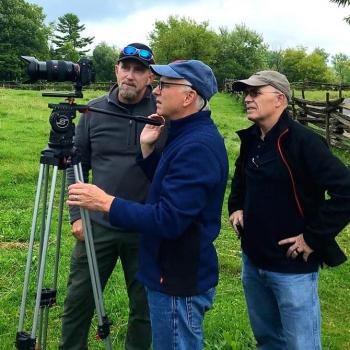Testing New Article Schema - Storage Structure Test
This Article is for Testing Purposes - please visit our Homepage for all of the exciting content we offer here at patheos.
Jesus' testing time in the wilderness was at the beginning of His public ministry to prepare Him for the work ahead in His mission. As we emerge with Him from our testing time in the wilderness after Lent, our work doesn't end with Easter. Whatever we learn through our Lenten experience is to prepare us for what God is calling us to do moving forward.
A friend of mine brought my attention to Creighton University's online ministries, where each day the Scripture readings and reflections can be found, and they have really challenged me spiritually. Taking to heart what they are teaching me, and reflecting on them, I can already see places where God is working, and areas I need to work on with His grace. I don't know about you, but I need to begin again each day. He is doing this patiently and gently as my loving Father.
This week we read how Jesus taught His followers how to pray (Mt. 6:9-15). We know this simple but transformative prayer as the "Lord's Prayer."
Here comes the biggest challenge: "...and forgive us our trespasses as we forgive those who trespass against us." Jesus emphasizes this part in verses 14-15, because it is the most transformative part of the prayer, and therefore the most difficult. It isn't easy, but God as our loving Father knows that we can only change when we see our own mistakes and are willing to let go of the things we hold against others, so we do not repeat them. Willingness is the key. Holding on to lack of forgiveness blocks God from working in our lives to help us grow.
The last part about temptation and delivering us from evil—well, we can count on it. We ask for God to deliver us from evil, and He will do it, even as we draw ever closer into our Father's embrace.
A couple of weeks ago, our nine-year-old granddaughter stayed overnight. Before bed, she and I prayed the Lord's Prayer together with her own personal intentions at the end. I could tell the wheels were turning as she finished the prayer. On the playground the day before, she had defended a friend, but the way she went about it probably wasn't the best, and she needed to talk about it, so we did. I told her that because she was willing to look at what she had done, she learned something about herself that she didn't like, but that the lesson would actually help her in the future to find a better way of handling a similar situation. She hugged and held me very close for a bit longer after our talk. I understood why. Sometimes it hurts to learn from our mistakes, but knowing unconditional love is available for us makes it all easier to bear.
When my oldest granddaughter was learning this prayer, I printed it out so that we could pray it together. She read it through and then asked me what some words and phrases meant. I would tell her what they meant in ways she could understand, and she then would give me examples from her own experiences. She wanted to be sure that she knew exactly what each part of the prayer meant. Here I was, thinking that I was helping teach her, and she was teaching me a lesson as well.
First, Jesus tells us that we can call God our Father—a bold and beautiful thought! To know that I can call God my Father, and that I am His child, is a very humbling thing. I am a member of His family, and He wants me home with Him when my time here on earth is through.
"Thy kingdom come, Thy will be done on earth as it is in heaven." Well, what am I personally doing to change myself to bring that about? Giving of ourselves to others—"alms giving," whatever we have to offer of our time, talent and treasure to help in our small way can bring about His will: "Please Lord; let your will be done in my own life."
"Give us this day our daily bread..." Yes, our temporal needs, but also spiritual "bread." I need to grow and become a better person. Fasting as a Lenten practice is to help us let go of the things that get in the way of building a closer relationship with God. For instance, fasting can be letting go of something like giving up time TV watching or surfing the internet—time we can use for reading a spiritual book that could inspire a deeper faith.
Here comes the biggest challenge: "...and forgive us our trespasses as we forgive those who trespass against us." Jesus emphasizes this part in verses 14-15, because it is the most transformative part of the prayer, and therefore the most difficult. It isn't easy, but God as our loving Father knows that we can only change when we see our own mistakes and are willing to let go of the things we hold against others, so we do not repeat them. Willingness is the key. Holding on to lack of forgiveness blocks God from working in our lives to help us grow.




